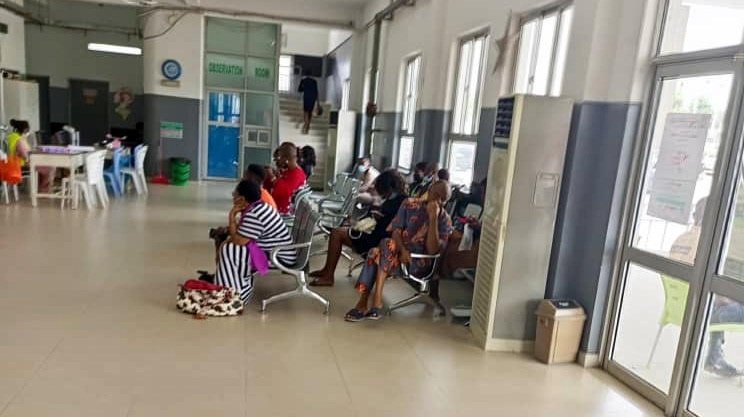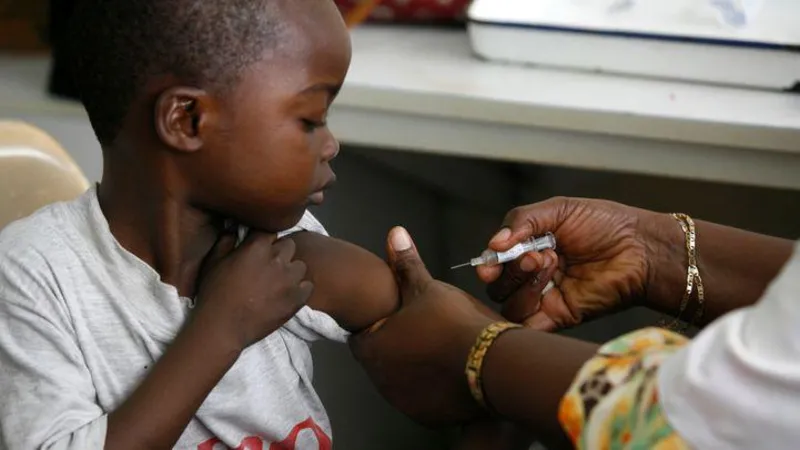Ten years after the United Nations launched the goal of Universal Health Coverage (UHC), Nigeria is still battling to align policy with practical realities. Despite the establishment of the National Health Insurance Authority (NHIA) and partnerships with Health Maintenance Organisations (HMOs) to improve access to healthcare, millions of Nigerians remain uncovered, underserved, and frustrated with the country’s fragile health system.
The Gaps
Health insurance is central to UHC, designed to provide access to quality healthcare without pushing people into poverty. However, enrollees and healthcare providers alike are raising alarm bells over inefficiencies, poor service delivery, and weak oversight, putting Nigeria’s progress toward the UHC target in doubt.
The Africa Health Report (AHR) reporter in Kano, Hussaini Kafi investigates the gaps in Nigeria’s health insurance ecosystem and what must be done to fix the system before the 2030 deadline.
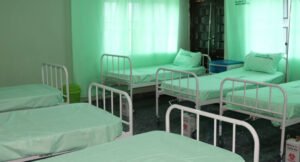
Policy on Paper, Problems in Practice
The UN’s UHC agenda sets an ambitious target: ensure all people can access essential health services without financial hardship. In line with this, Nigeria rebranded the former NHIS into the NHIA in 2022 and passed legislation making health insurance mandatory for all citizens.
The NHIA now regulates various insurance schemes—from formal sector workers to state-level programs and the informal economy. It also oversees the operations of over 60 HMOs tasked with bridging service delivery between healthcare providers and enrollees.
Yet, despite these reforms, less than 10 per cent of Nigerians are enrolled in any health insurance plan. According to World Bank data, over 70 per cent of healthcare expenses are still paid out-of-pocket, among the highest rates globally.
For a country of over 200 million people, these figures signal a deep disconnect between policy intentions and the realities on the ground.
Frustration Builds Over HMOs
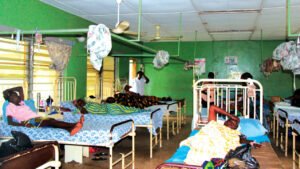
A growing number of enrollees have begun voicing their disappointment with the services offered by HMOs.
“I’ve been enrolled for three years now, but I still get turned away for simple lab tests,” said Abdulrahman Salisu, a civil servant in Kano. “When the hospital tells you your plan doesn’t cover something basic, what exactly am I paying for?”
Salisu’s experience is not isolated. Across Nigeria, insured patients say they routinely pay out-of-pocket for consultations, tests, or medications supposedly covered under their plans. Complaints range from long approval delays to a lack of access to specialists and essential drugs.
Healthcare providers also share in the frustration. A Jigawa-based private clinic operator, Dr. Oluchi Nwafor, told AHR that many HMOs default on payments for months.
“We are stuck. We treat NHIA patients, but reimbursement is delayed or incomplete. Eventually, we have to restrict what services we offer them,” she said.
The trust deficit between enrollees, healthcare providers, and HMOs is widening, with many accusing the NHIA of lax oversight.
Government Commitment: A Mixed Picture
In 2022, the Nigerian government launched a revamped legal framework under the NHIA Act, which includes provisions for a Vulnerable Group Fund aimed at supporting poor and unemployed Nigerians. The law also makes enrollment compulsory for all citizens.

However, state-level implementation has been inconsistent. Many states have yet to domesticate the NHIA law or establish functioning health insurance agencies. Where they exist, coverage remains limited due to inadequate political will, poor public sensitisation, and weak enforcement.
Health experts say government engagement is still far from adequate.
“Most states treat health as a secondary concern,” said Dr. Chinedu Eze, a health economist at the University of Nigeria. “They pay lip service to health insurance but fail to commit funds or infrastructure.”
Budget allocations reflect this indifference. Nigeria continues to fall short of the 15 per cent Abuja Declaration benchmark, with most federal and state budgets allocating less than 5 per cent to healthcare annually.
This chronic underfunding affects every layer of the system—from poorly staffed Primary Healthcare Centres (PHCs) to hospitals running on obsolete equipment.
What Needs to Change?
To stand any chance of meeting the UN’s UHC goal by 2030, Nigeria must take immediate, bold actions. Health sector stakeholders, civil society groups, and analysts agree on several priority areas:
- 1. Reform and Regulate HMOs
The NHIA must enforce strict monitoring and sanctions against underperforming HMOs. Transparent reporting of payments, service coverage, and enrollees’ satisfaction should be made mandatory.

A public online platform for enrollees to report service gaps and track complaints in real time could restore accountability and trust.
- Accelerate State-Level Rollout
States must take ownership of their health insurance programs and align with federal guidelines. Government at all levels should invest in public education to drive enrollment, especially in the informal sector.
“The future of UHC in Nigeria rests on subnational leadership,” said Dr. Hadiza Musa, a health policy consultant based in Kaduna. “We need state governors to champion health insurance the way they campaign for roads or agriculture.”
- Revive the PHC System

Over 70 per cent of health issues can be addressed at the primary care level. Yet, many PHCs across Nigeria lack essential staff, drugs, and medical supplies. To drive UHC, the government must allocate more funds to PHC revitalisation and ensure steady oversight.
“Without functional PHCs, the health insurance system will always be overwhelmed at the secondary and tertiary levels,” said Musa.
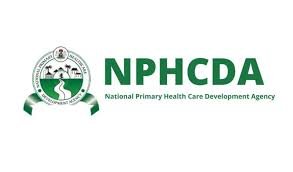
- Widen Coverage Through Community Models
To enroll Nigeria’s large informal workforce, NHIA should adopt community-based health insurance models supported by cooperatives, market unions, and mobile registration platforms.
Micro-premiums and flexible payment options can encourage participation among low-income groups
- Increase Health Sector Funding
Experts say Nigeria must double or triple its health spending to build a resilient system. The National Assembly should push for increased health budget allocations and track how existing funds are utilised.
- Public Awareness Campaigns
Low enrollment is partly due to limited awareness. A nationwide media campaign—using local languages and community influencers—should be launched to demystify health insurance and correct misconceptions.
Civil Society Raises Alarm
Groups like the Resource Centre for Human Rights and Civic Education (CHRICED) have long called for transparency and people-first reforms in the health sector.

“Healthcare is not a favour. It’s a right. Government must regulate HMOs more aggressively and ensure people are not exploited under the guise of insurance,” said Dr. Ibrahim M. Zikirullahi, CHRICED’s Executive Director.
CHRICED also urged the National Assembly to audit NHIA’s operations and review budget implementation reports for health-related agencies.
“Without accountability, we are pouring water into a leaking bucket,” Zikirullahi warned.
Voices from the Frontline
AHR spoke with several ordinary Nigerians across the country—teachers, traders, artisans, and retirees. Most had either never heard of health insurance or had lost faith in the system.
“It’s a scam,” said Rita Onwudinjo, a schoolteacher in Imo State. “They deduct money every month, but when my daughter fell ill, we still paid everything ourselves.”
Others, like 58-year-old Kabiru Sani from Kano, say they stopped going to hospitals altogether.
“I treat myself with herbs now,” he said. “Hospitals are either too far, too expensive, or useless.”
2030 Is Around the Corner
With five years left to meet the UHC deadline, Nigeria’s current trajectory is alarming. Unless urgent steps are taken to strengthen health institutions, enforce accountability, and empower states to act, millions of citizens will remain outside the safety net.
Dr. Chinedu Eze puts it bluntly: “UHC is achievable in Nigeria. But not with this level of negligence. Not with a system where the poor still die for lack of ₦5,000 for drugs.”
The question is no longer whether the policies exist—they do. The real test lies in whether Nigeria has the political will, administrative capacity, and social empathy to turn them into reality.

